Garments and textiles
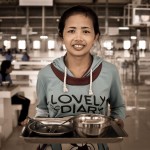
The garment industry has rooted in Cambodia earlier than the footwear industry. As a result of trade privileges given by the U.s. and EU, both industries have blossomed. As of 2013, the garment and footwear industries were accountable for about 80 percent of Cambodia’s total ss='cambodia-color'>...
Gold

Although there is currently no commercial-scale production of gold carried out in Cambodia, exploration by many companies is underway, with some promising find reported. subject to government approval, commercial production could begin in 2016 or 2017. Gold is found in a number of ss='cambodia-color'>...
Foreign investors
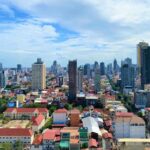
Things you should know about Cambodia before investingCambodia has performed well on foreign direct investment (FDI) so far, three times better than predicted, which scored 3.6, becoming the top 25 in the world.1 The FDI reached an all-time high of 14.1% in 2012 and nearly ss='cambodia-color'>...
Small and medium enterprises SME
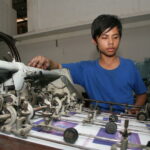
Small and medium enterpriSeS (SME) have long been conSidered a vital driver to economic growth for developing economieS. SMES Stimulate job creation throughout the country. Migration of employment to neighboring countrieS and the unemployment rate haS Significantly decreaSed due to a riSing number of SMES, SS='cambodia-color'>...
SDG 13 Climate action
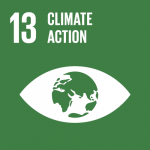
SDG 13 iS aimed at taking urgent action to combat climate change impactS by developing the capacity of each country to mitigate climate riSkS and work towardS adaptation. LeaSt developed nationS, landlocked countrieS and Small iSland StateS are recogniSed aS eSpecially in need of Support SS='cambodia-color'>...
Electricity infrastructure
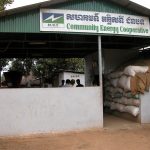
Rural energy cooperative in Cambodia. Photo by Nomade Moderne, taken on 23 March 2006. Licensed under CC BY-NC-ND 2.0The electricity distributed in Cambodia is partly generated within the country and partly imported. For many years, local generation was on a relatively small scale, and was ss='cambodia-color'>...
Ministries and other national bodies
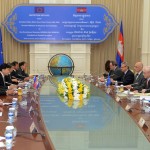
Nearly all of the ministries were established in 1995. A few ministries were only recently created in the post-2013 national election by a separation of one ministry into two. There are 28 government ministries and secretariats, and many national bodies. ss='cambodia-color'>...
Water and sanitation
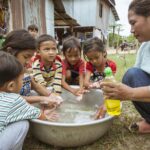
Children in Moung district, Battambang province, wash their hands with soap and water. Photo by WorldFish Cambodia, taken on 08 November 2018. Licensed under (CC BY-ND 2.0).Recognized as a global crisis, the United Nations has included water and sanitation in sustainable Development Goal 6, ensuring ss='cambodia-color'>...
SDG 9 Industry, innovation and infrastructure
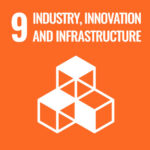
SDG 9 focuSeS on the development of SuStainable and reSilient infraStructure and induStrieS, including Small-Scale enterpriSeS. It encourageS Scientific reSearch and the upgrade of the technological capabilitieS of induStrieS. AcceSS to information and communicationS technology and affordable Internet acceSS are included. The goal haS 5 SS='cambodia-color'>...
Legal aid

Under Cambodia’s Constitution, all Khmer citizens have equal status before the law, regardless of wealth or station.284 This promotes a political principle called the rule of law,285 an ideal that all members of a society, both the people and the state, are held equally accountable ss='cambodia-color'>...
Protected forest
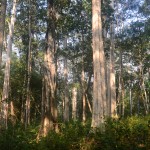
Protected Forests are generally established under individual sub-decrees, specifically for the purpose of protecting biodiversity and conservation. They are home to many endangered or threatened species. ss='cambodia-color'>...
On-shore oil and gas exploration and extraction
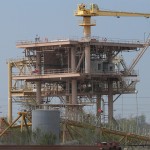
Nineteen onshore blocks have been delineated for possible oil exploration. Contracts have been awarded for three. No oil is currently extracted in Cambodia. ss='cambodia-color'>...
Fisheries production
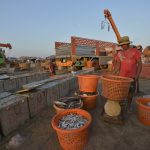
Local workers loading fresh catch to be transported to the city market at Chhnoc Trou pier, Kampong Chhnang province, Cambodia. Photo by sylyvann Borei/World Fish, taken on 7 April 2014. Licensed under CC BY-NC-ND 2.0.Cambodia has abundant and productive fisheries. Fish is a traditional staple in the Cambodian ss='cambodia-color'>...
Bilateral development assistance
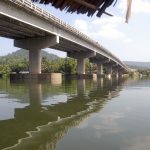
Phum Doung Bridge over the Tatai River. Photo by Robert Tyabji, taken on 9 December 2010. Licensed under CC BY-NC-ND 2.0Bilateral aid is assistance given by a government directly to the government of another country or to a local NGO. The Royal Government of Cambodia ss='cambodia-color'>...
SMEs policy and regulation

The Covid-19 pandemic has caused a major economic shock in Cambodia, having a spillover on Cambodian micro, small and medium enterprises (MsMEs) and small household farmers’ survival and business continuity.402 Digital technologies are crucial during the pandemic, in which the owners of sMEs should focus ss='cambodia-color'>...
Development and assistance for land tenure and land titling
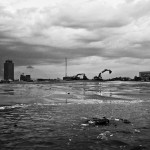
Beginning in 2002, the World Bank, Germany, Finland and Canada began a joint-program to promote land tenure security in Cambodia by providing financial and technical support to land titling efforts. Following the eviction of residents of the Boeung Kak Lake area of Phnom Penh due ss='cambodia-color'>...
Major banks
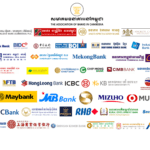
In 2020, COVID-19 severely impacted both the global and Cambodia economies. The banking system in Cambodia is also affected but at a moderate and manageable level.450 The National Bank of Cambodia (NBC), Cambodia Microfinance Association, and other relevant institutions pointed out the rate of the ss='cambodia-color'>...
Investment
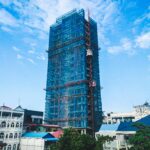
Cambodia restructured its economy after many years of protracted war and instability. The economy grew strongly following the country’s transition to a free-market economy as it opened to trade and capital flows. Growth was supported by the flow of development assistance, access to the European ss='cambodia-color'>...
Renewable energy production
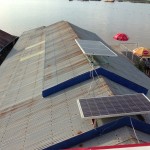
Renewable sources of energy include biofuels, solar, wind, tidal and geothermal energy. Fossil fuels such as petroleum or coal are not renewable. ss='cambodia-color'>...
Land sales and trades
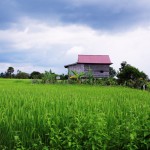
The legal framework surrounding land sales and transfers was obliterated by the 2007 Civil Code, leaving little legal guidance. Forced land sales and distress sales are a substantial cause of land tenure insecurity in Cambodia. They are a significant cause of landlessness, and it is ss='cambodia-color'>...



